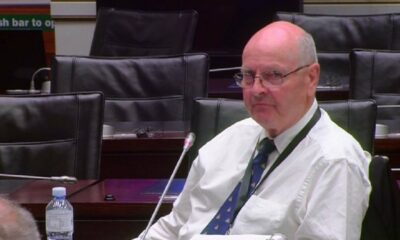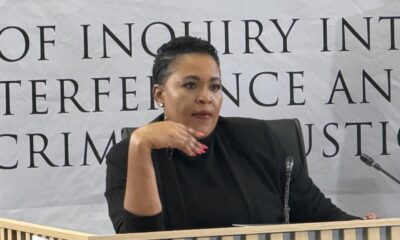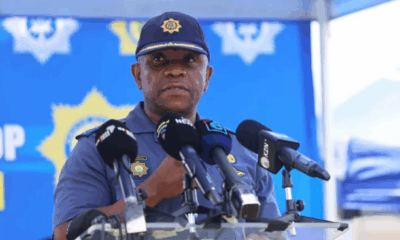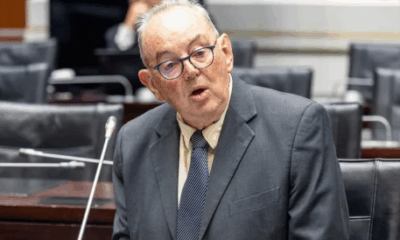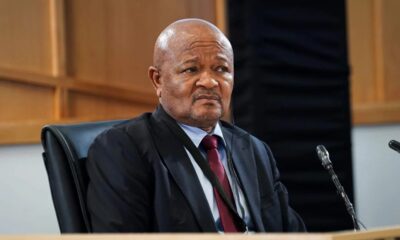News
Cedrick Nkabinde Tells Parliament: ‘I Have Nothing to Hide’ as Police Interference Probe Deepens
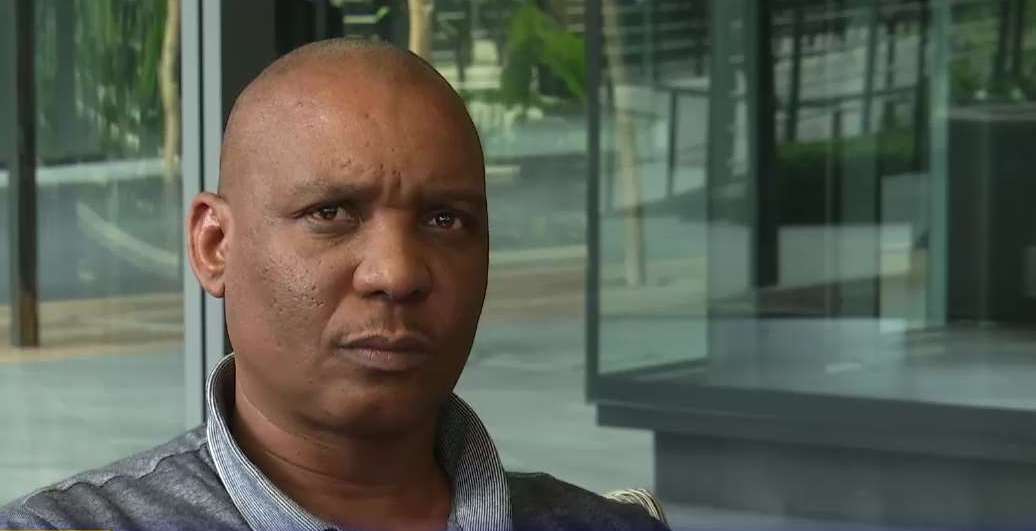
The Man in the Spotlight
Under bright parliamentary lights and sharper political scrutiny, Cedrick Nkabinde, the chief of staff to suspended Police Minister Senzo Mchunu, faced MPs this week with a firm message: “I have nothing to hide.”
The statement came during his testimony before Parliament’s Ad Hoc Committee, which is investigating allegations of corruption, criminal infiltration, and political interference within South Africa’s law enforcement structures. The hearings have become a central drama in the country’s broader reckoning with police accountability and political power.
How We Got Here
The committee was established after months of internal turmoil within the security cluster. At the centre sits Mchunu, who earlier denied any involvement in corruption or meddling with police operations. His chief of staff, Nkabinde, has now become one of the most talked-about figures in the unfolding inquiry.
Nkabinde’s rise through the ranks has sparked questions. Once a case docket handler, he quickly climbed to become one of the minister’s closest advisers, a trajectory KwaZulu-Natal Police Commissioner Nhlanhla Mkhwanazi told MPs had raised eyebrows. Mkhwanazi testified that he first met Mchunu through Nkabinde, even before Mchunu became police minister in 2024.
Critics, including senior police figures, have questioned Nkabinde’s qualifications for such a senior post, suggesting his appointment reflected more politics than merit.
Nkabinde Strikes Back
In his appearance, Nkabinde rejected any suggestion of incompetence or wrongdoing. Calm yet defiant, he told Parliament he was fully cooperating with investigators and accused law enforcement agencies of intimidation tactics.
His comments followed a police raid on his Johannesburg home last month, where officers seized electronic devices and detained his brother briefly. “It was heavy-handed and politically motivated,” he said, describing the search as an attempt to discredit him as a witness in the ongoing parliamentary process.
“I have nothing to hide. If I am called to testify or take part in any legal process, I will do so without hesitation,” he insisted.
He maintained that his appointment had been based on merit and integrity, not connections. However, he also admitted he had lost faith in certain investigators, saying any future engagement would take place through his legal representatives.
The Bigger Picture
Nkabinde’s testimony forms part of a broader investigation into the controversial disbandment of the Political Killings Task Team (PKTT) late last year. The task team, originally set up to combat politically motivated assassinations in KwaZulu-Natal, was abruptly dissolved in December 2024, a move that drew national concern.
Parliament’s committee is now probing whether that decision, along with other alleged acts of interference, stemmed from political pressure or corrupt influence.
Public and Political Reaction
South Africans online have reacted with scepticism and fatigue. Many view the hearings as another chapter in the long-running story of power struggles within the police ministry. On X (formerly Twitter), some questioned whether Parliament’s inquiry would produce real accountability, while others applauded Nkabinde’s decision to testify publicly instead of remaining silent.
What remains clear is that the committee’s work has already exposed deep fractures inside law enforcement. With testimonies from national and provincial commissioners, former ministers Bheki Cele and Firoz Cachalia, and National Prosecuting Authority head Shamila Batohi, the inquiry is shaping up to be one of the most significant police-oversight investigations since the days of the State Capture Commission.
A Defining Testimony
For Nkabinde, this moment could define his career. His insistence on transparency may help restore credibility, or it may deepen doubts about the inner workings of the ministry he served. What happens next depends on Parliament’s findings and whether this probe can finally lift the curtain on how politics and policing became so entangled in South Africa’s democratic story.
Also read: A Cigarette Burn and a Fractured Skull: Hout Bay Confronts an Unthinkable Crime
Follow Joburg ETC on Facebook, Twitter, TikT
For more News in Johannesburg, visit joburgetc.com
Source: IOL
Featured Image: eNCA

